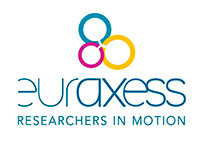Bolsa de TT-4 em Pesquisa e Desenvolvimento de Software
TT-4 fellowship in Software
Nº: 1427
Área de conhecimento: Engenharia
Field of knowledge: Engineering
Nº do processo FAPESP: 2016/50043-6
FAPESP process: 2016/50043-6
Título do projeto: Sistema integrado de avaliação da fadiga e do estado sono-vigília
Project title: Integrated system for fatigue and sleep quality evaluation
Área de atuação: Software
Working area: Software
Pesquisador responsável: Lisane Valdo
Principal investigator: Lisane Valdo
Unidade/Instituição: Versor Inovação
Unit/Instituition: Versor Inovação
Data limite para inscrições: 01/03/2017
Deadline for submissions: 2017-03-01
Publicado em: 02/02/2017
Publishing date: 2017-02-02
Localização: Rua Jaguari, 283 Santo André
Locale: Rua Jaguari, 283 Santo André
-
Resumo
Summary
Bolsa TT-4A para pesquisa e desenvolvimento em software de alto nível - 20 meses - R$ 4.705,20 líquido/mês
Título: Desenvolvimento de aplicação para banco de dados com acesso remoto.
Resumo: O bolsista será responsável pelo desenvolvimento de um sistema computacional para acesso remoto a informações e banco de dados para armazenamento de dados. Ambos com disponibilidade contínua e, em alguns casos, com características próximas ao tempo real.
Condições FAPESP: Dedicação exclusiva - Bolsa TT-4A, para graduado, especialista em TI com pelo menos quatro anos de experiência, sem vínculo empregatício, com dedicação de 40 horas semanais às atividades de apoio ao projeto de pesquisa.
Descrição dos objetivos: Modelagem do banco de dados de acordo com os objetivos da pesquisa em andamento e do produto em desenvolvimento. Implementação deste banco de dados sob o conceito de um serviço nos moldes descritos pelos padrões SAS - software como serviço.
As atividades que serão desenvolvidas pelo bolsista envolvem as seguintes tarefas e conhecimentos:
A. Desenvolvimento de software de alto nível para aplicações mobile, internet e interação com firmware.
B. Aplicações com interface USB, ethernet, bluetooth e wi-fi. Camada física e camada de software.
Interessados devem enviar CV para: lvaldo@mac.com.Our focus is on workers performing risky tasks. We intend to offer a tool that allows the reduction of occupational accidents caused by excessive fatigue. The system characteristics were specified according to feedback from health professionals, drivers, insurance companies and the federal highway police in Brazil.
The product under development will enable an assessment of fatigue and waking-sleep state using 3 smart subsystems. These subsystems are able to extract biological information signals and transmit them to a monitoring central. The subsystems are:
- A force platform that aims to determine the stabilogram of an individual and infer his state.
- A sensor colecting the frontal brain waves.
- A proprietary actigraphy system.
These subsystems enable an assessment of sleep quality of an individual. With these three pieces of information analyzed jointly, we can estimate whether the individual is or is not able to perform certain tasks. One feature that deserves to be highlighted is that each subsystem can be used separately. We believe that this feature can extend the business feasibility.
During the first 6 months of development, we created and tested an algorithm to determine the quality of sleep from accelerometer signals. In this first stage we applied the algorithm to data of 43 patients, each referring to a night's sleep, and obtained a time series indicative of the state, asleep or awake, as well as synthesis parameters useful for assessing the quality of sleep. The time series was compared with polysomnography signals collected simultaneously. Polysomnography is considered the gold standard in the study of sleep disorders. The Kappa and PABAK parameters indicate good agreement between the methods, indicating that the good results were not obtained at random. The sleep quality parameters were analyzed applying the Kendall's W coefficient of concordance and a statistical test t-test and P-value type. In both cases there was statistical agreement between the methods.
We are currently analyzing the front waves for a group of 14 volunteers divided into two situations: after a normal working day and after 36 hours of sleep deprivation. So far the results are promising but inconclusive.
For further information, please contact lvaldo@mac.com.
-
Enviar
Oportunidade - Oportunidades Abertas Open Opportunities
-
Fellowships Opportunities
